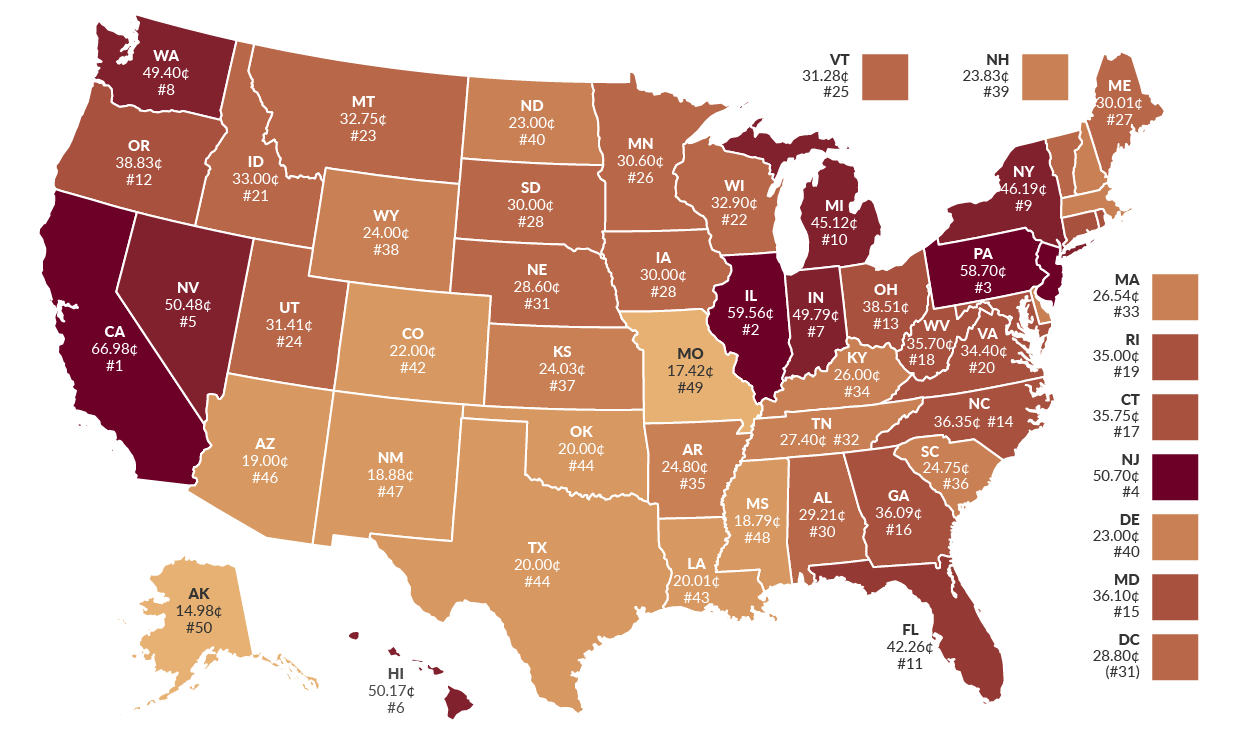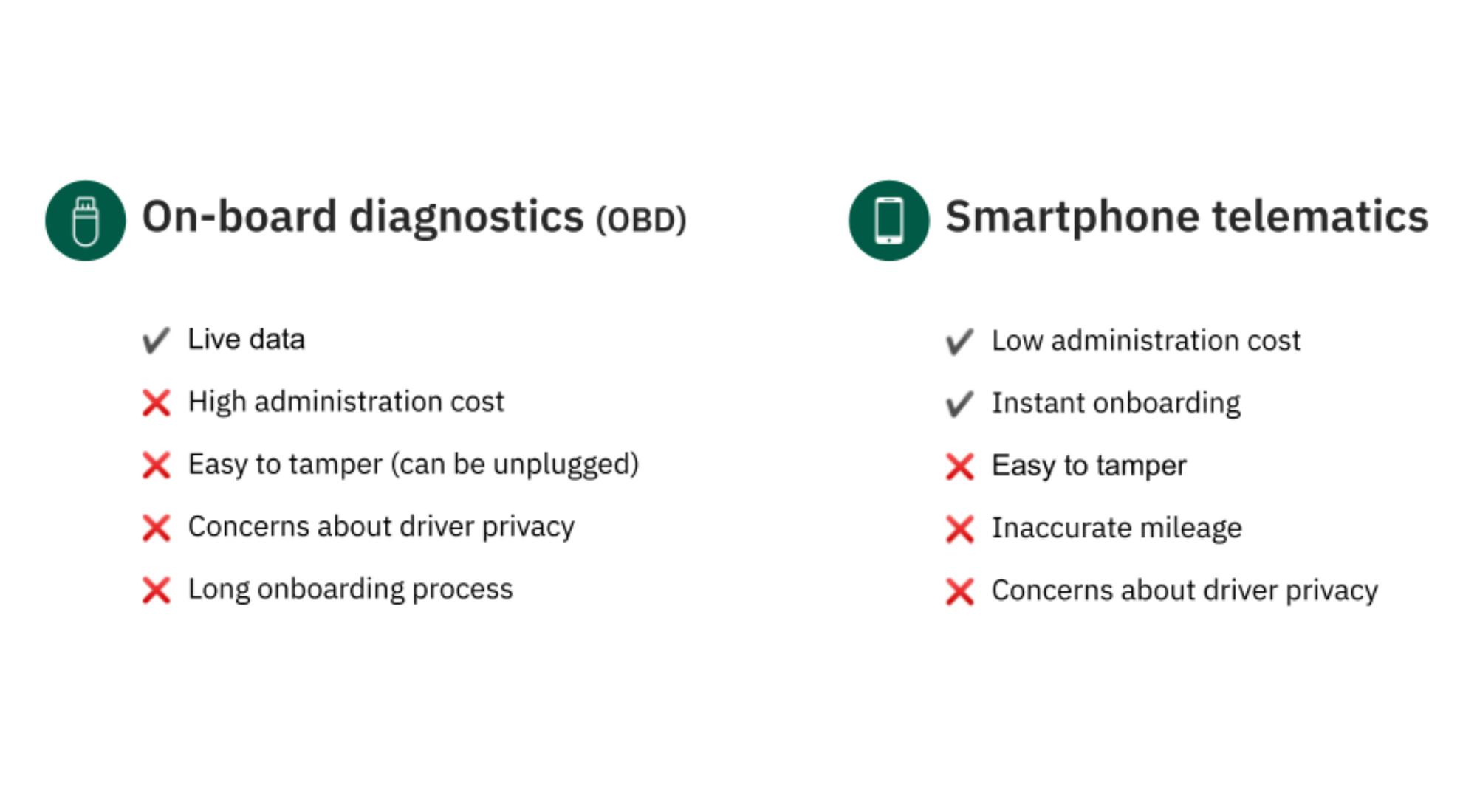Emovis and Smartcar partnered up to talk about collecting alternative pay-per-mile road taxes as drivers transition to electric vehicles. If you missed the event or are in need of a quick refresher, this recap highlights discussions on current taxation, types of mileage collection, and how emovis integrates with Smartcar for road usage charge programs.
With US sales of electric vehicles in the new decade projected to grow 7x larger than what it was in 2020, collecting taxes at the gas station will no longer be the best option to fund state and federal budgets.
What does road usage charge look like today?
Road usage charge programs are being piloted by states to replace the fuel tax and provide a sustainable method for state transportation departments to maintain the quality of roads used by all vehicles.
But how exactly are states working with mobility partners to scale equitable road taxes for drivers on a pay-per-mile basis?
Smartcar’s Vice President of Sales, Mike Singh, and CEO, Sahas Katta were joined by Charlie Mitchell, Senior Program Manager at our webinar ‘Connected mobility: Collecting an alternative road tax’ to talk about the role of embedded telematics in road usage charge infrastructure.
Gas taxes can be hefty, but pay-per-mile taxes are proportionate

Gas taxes range from 33 cents per gallon in Alaska to 85 cents per gallon in California (including a federal gas tax of 18.3 cents per gallon). On average, this means we would see Californians who purchase gas pay about $280 a year in state gas taxes.
According to the Energy Information Administration (EIA), the shrinking demand for gasoline is projected to cause a 30% decrease in gas tax revenue by 2030. With 80% of road repairs funded by a gas tax, mileage-based road charge programs will be a proportionate alternative to keep road budgets intact as EV adoption becomes a norm.
In the state of Utah, emovis launched a live revenue service of the state’s road usage charge program in 2020. The program offers EV owners the option to report their mileage electronically, giving them an accurate and hassle-free way to calculate the required payment for miles they’ve used.
“We had to implement a method for electronically gathering mileage and location data,” said Mitchell. “Traditionally, this had been done only by adding on-board diagnostics (OBD) devices to the cars, but the Utah Department of Transportation (UDOT) wanted to be able to support cars like the Tesla Model 3 [that do not have OBD ports].”
Hardware vs software: What’s the difference for mileage collection?
The Infrastructure Bill passed by the Biden administration has allocated a $50 million budget for a national road usage charge pilot program in the next five years. After successfully graduating UDOT’s pilot program into a revenue service program, emovis is now engaging in long-term planning to architect a program that can handle billions of trips per day.
However, hardware devices can make it difficult to support program transactions at that scale.

In the meantime, software-based solutions like Smartcar leverage embedded telematics to give state governments and account managers like emovis the following benefits.

Embedded telematics is ready to support pay-per-mile tax systems
Smartcar’s solution utilizes embedded telematics inside vehicles, making it simple for emovis to pull the necessary data to power road usage charge programs, like odometer readings, VINs, and vehicle location.
Every vehicle brand has its own fragmented proprietary sets of APIs, communication protocols, and consent management. Smartcar helps states overcome that administration hurdle by allowing programs to scale with a single integration to 22 compatible brands. Here’s what that looks like when broken down.

Embedded telematics is the most reliable, secure, and cost-efficient way to roll out pay-per-mile tax programs nationwide. Most importantly, it reduces as much friction as possible for EV owners with a three-click onboarding process on an app, mileage retrievals at regular intervals, and zero need for device installations or photo uploads.
Get in touch with emovis and Smartcar
For a deeper look into road usage charge programs and the technology that makes it happen, watch a replay of Smartcar’s joint webinar with emovis, Connected mobility: Collecting an alternative road tax.
Emovis provides toll-based mobility services in the United States and around the world, including traditional tolling solutions, free-flow tolling services, and road usage charge (RUC) programs. To get in contact with emovis, visit their website.
To learn more about what Smartcar’s API can do for your road usage charge programs or mobility business, take a look at our platform’s features and schedule a demo with us.





